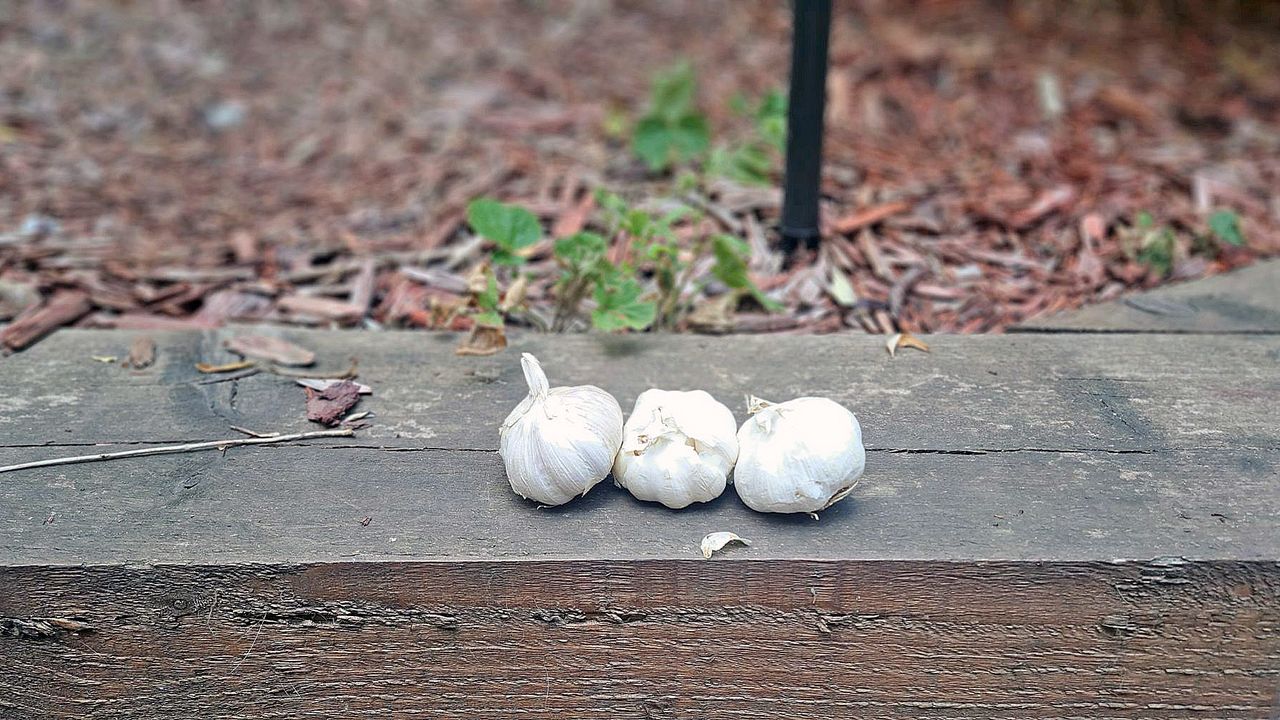
Whether you’re growing vegetables or flowers, it’s always disheartening to see your beautiful plants destroyed by bugs.
But if you’re growing garlic, or simply enjoy cooking with it, you could also be putting this ingredient to good use in your yard.
According to experts, garlic is a great, natural tool in the garden that serves multiple purposes. And despite sounding as strange as sprinkling chilli powder in your yard, the humble garlic bulb has more benefits than we think.
We’ve got the gardening experts at hand to share the reasons why garlic is as good for your yard as it is for your plate.
Interplanting/companion plant
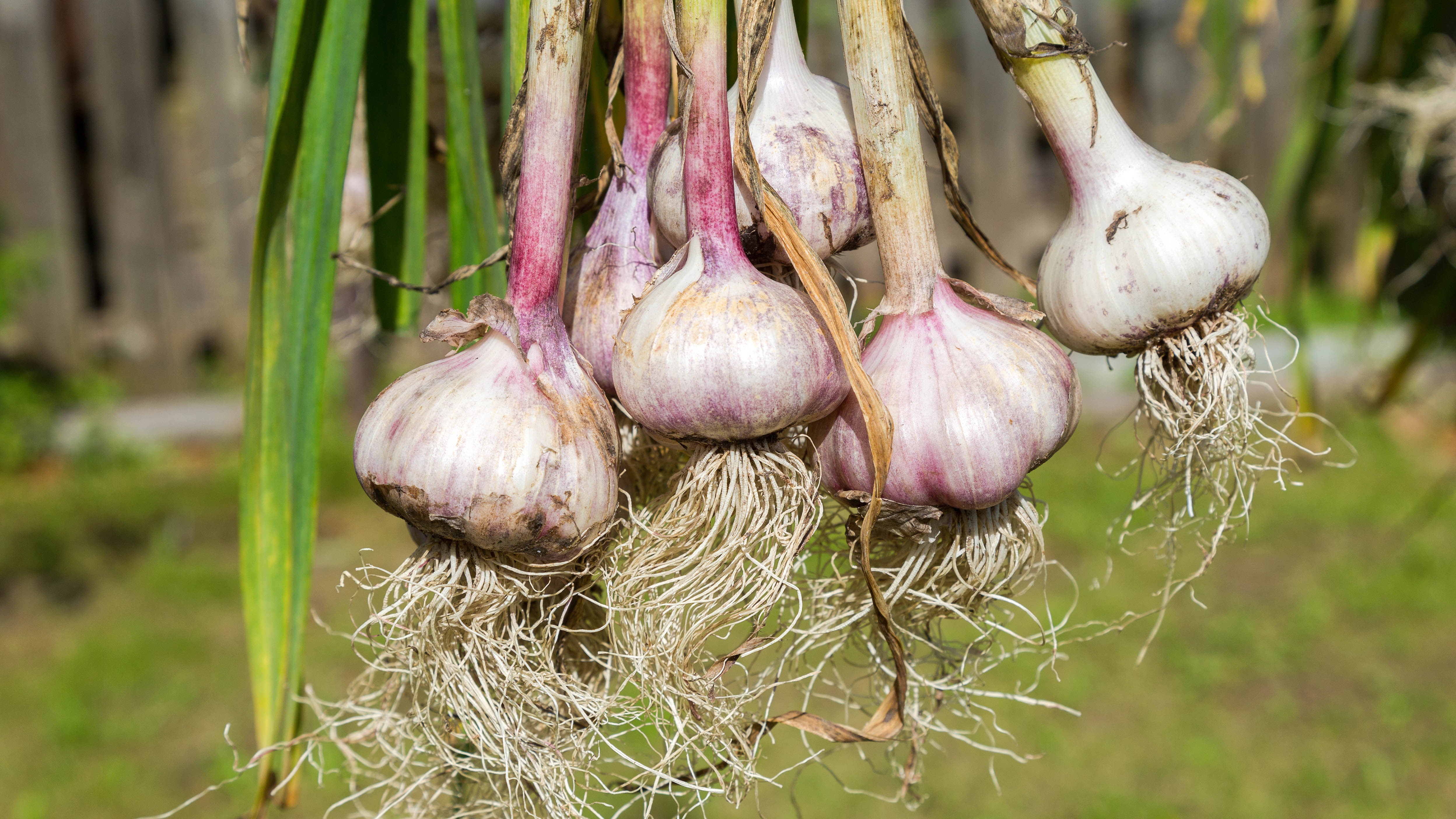
As the name suggests, companion planting is a great, low-maintenance way to improve the health and soil quality of almost anything it’s planted next to.
“When used properly, it can help improve plant health and reduce the need for chemical interventions,” states Petar Ivanov, gardening and plant expert at Fantastic Gardeners.”
“The most common method is to plant garlic directly in the soil among vegetables and flowers. Garlic releases sulfur compounds into the soil, which are natural fungicides and can help prevent root diseases in neighbouring plants.
It's particularly effective when planted near crops such as tomatoes, peppers, cabbage and roses. These plants benefit from garlic’s pest-repelling properties, especially against aphids, spider mites and cabbage loopers.”
It’s important to keep in mind that not all plants are suitable for interplanting, so you’ll need to do some research before placing garlic next to plants.
“Interplanting with garlic isn’t suitable for all plants so you do need to be selective and research before planting,” adds Lucie Bradley is an expert gardener with Easy Garden Irrigation.
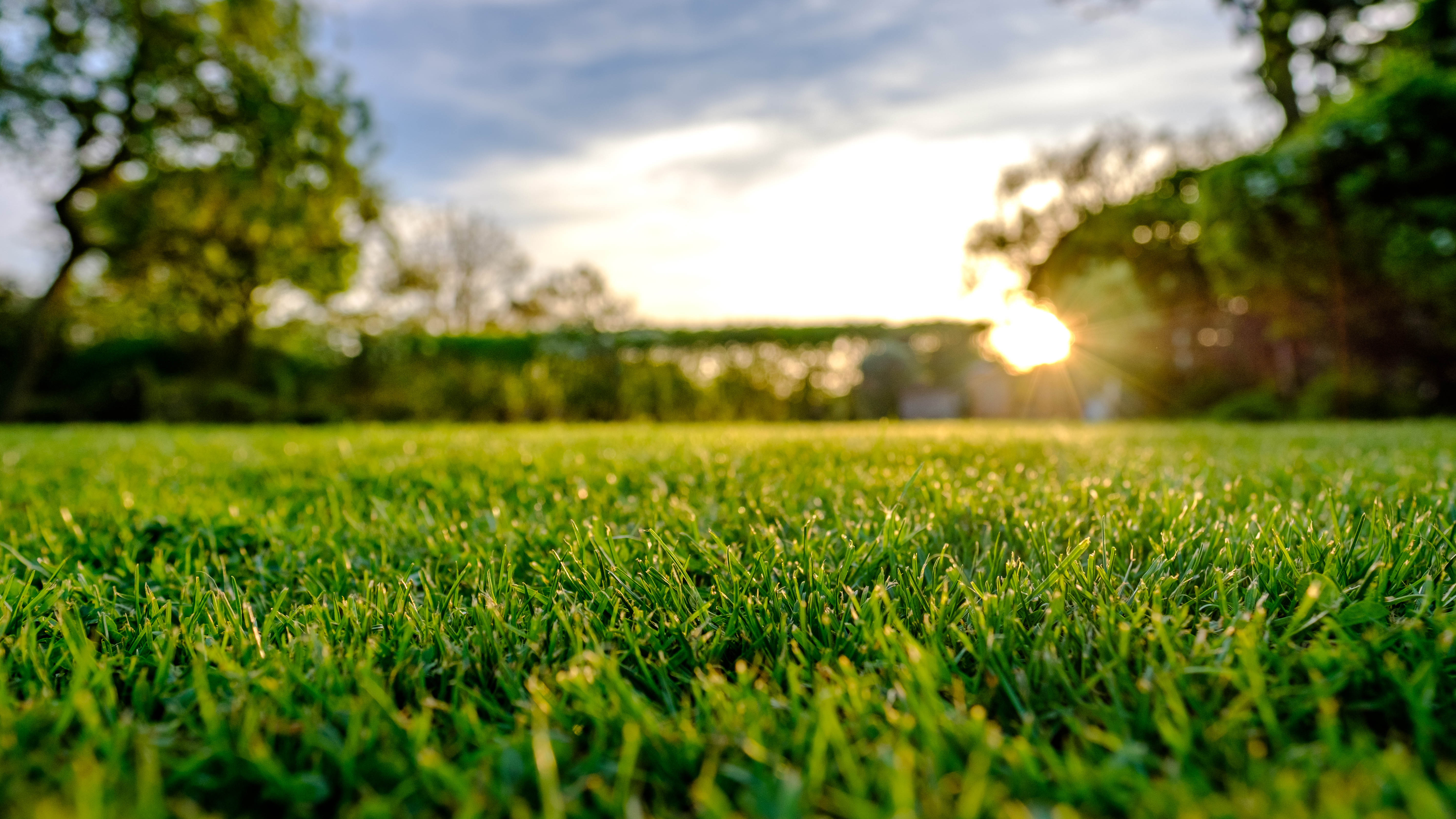
In addition, garlic is beneficial for lawn care and healthy growth. "Decomposing garlic can release nutrients, like potassium and phosphorus into the soil, supporting grass health," states Edwin Dysinger, Co-Founder of Seedtime.
"While it's certainly not a do-all trick and shouldn't be substituted for a more balanced fertilization plan, garlic can be a complementary tool for a healthy, pest-resistant lawn."
Natural pest repellent
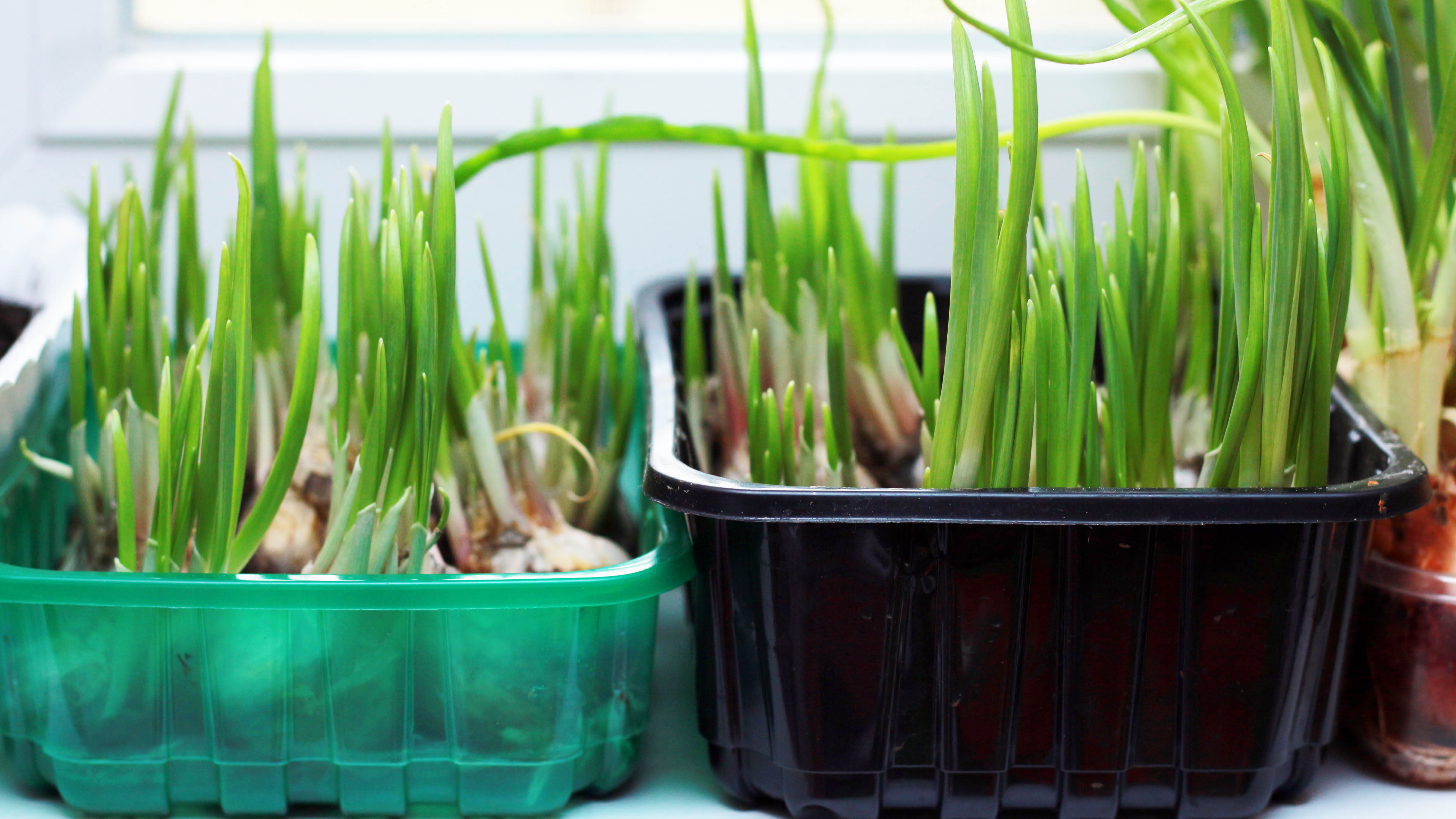
If you struggle with destructive bugs in the yard, or prefer a more natural solution, garlic is an effective pest repellent.
“Garlic works as a natural pest repellent because of the strong sulfur-containing compounds it produces, primarily allicin,” adds Ivanov.
“When garlic is crushed or damaged, it releases allicin and other volatile oils that have a strong, pungent odour. This smell is offensive to many insect pests and even some small animals, effectively driving them away from treated areas.
Allicin not only deters pests through scent but also has antifungal and antibacterial properties, which help protect plants from certain pathogens.”
And while garlic doesn’t kill or stop pests or bugs completely, the smell masks and interferes with their ability to detect host plants.
“It just makes the area around your plants a little less inviting for insects like aphids, spider mites, whiteflies, and some caterpillars,” agrees Nicole Carpenter, the President at Black Pest Prevention. “If you have a real problem, garlic is not something to rely on, it’s more of a prevention. It’s just better than nothing, but not foolproof.”
How to use garlic in your yard
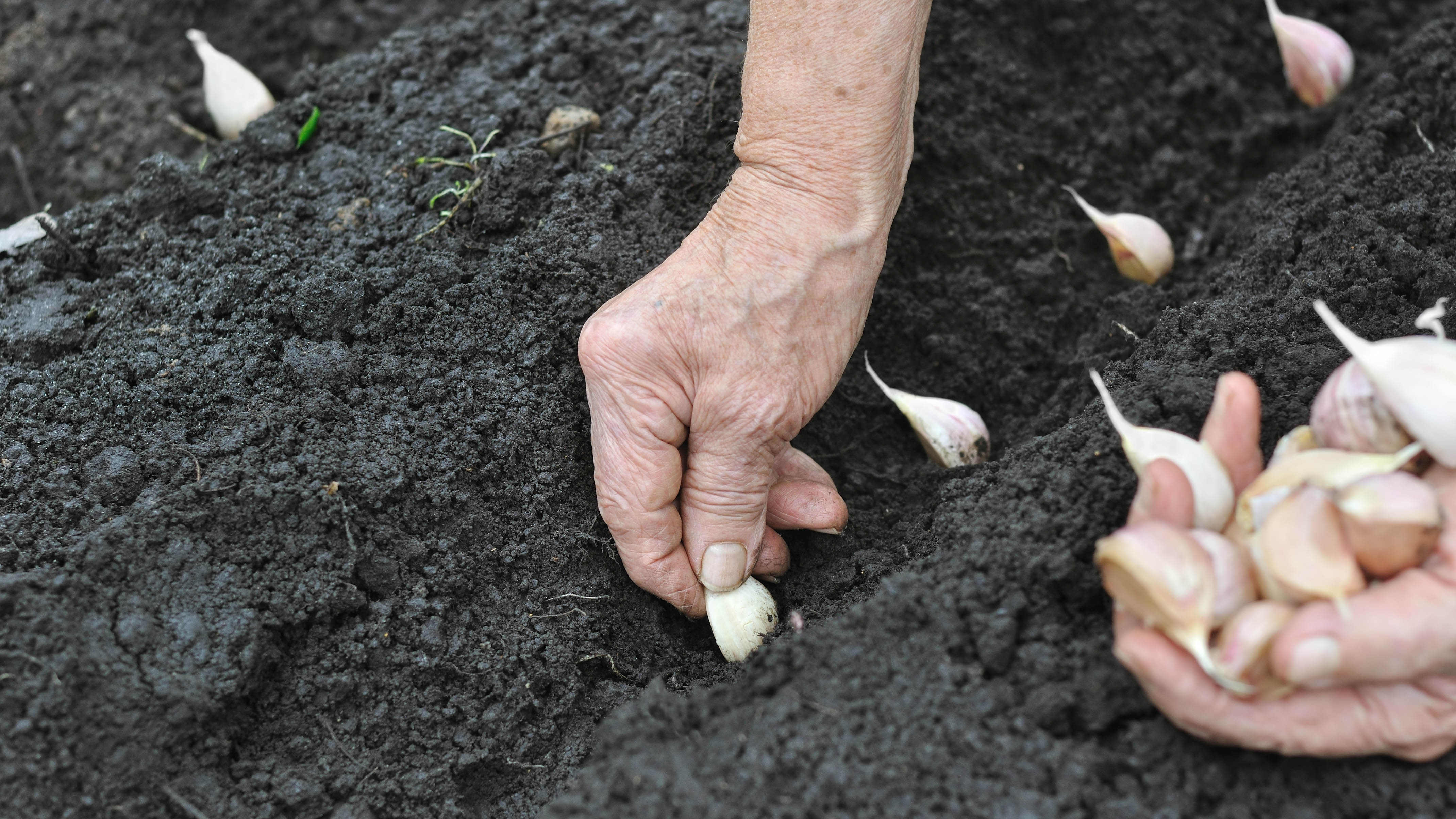
So what’s the best way to get the most out of garlic cloves in the yard? “Plant it directly in your garden beds as a companion plant,” advises Carpenter.
“Space cloves about five inches apart, and plant them near the base of plants you want to help protect, so the smell can help mask the tasty scent that pests are drawn to.
Then, bury each clove pointed-end up, about 2 inches deep, and keep the soil lightly moist but not soggy.”
How to make a garlic spray
Alternatively, you can make a simple, DIY garlic spray to use around the yard.
Simply crush 4-5 fresh garlic cloves and soak them in water overnight.
Then strain solution into a clean bottle, before spraying on plant leaves. You can add a drop of mild dish soap to help it stick to leaves.
“Test before full application,” advises Ivanov. “Always spray a small section of a plant and wait 24 to 48 hours. If there's no leaf spotting or wilting, it's generally safe to use garlic more broadly.
Some plants, especially tender-leaved herbs or seedlings, can be sensitive to garlic spray. Also, apply in the early morning or late evening. This prevents leaf burn and gives the spray time to dry before the heat of the day. It also avoids harming beneficial insects such as bees, which are active during midday.”
So before you invest in expensive pest repellents, look no further than your kitchen pantry, and put the mighty garlic to use this summer.







